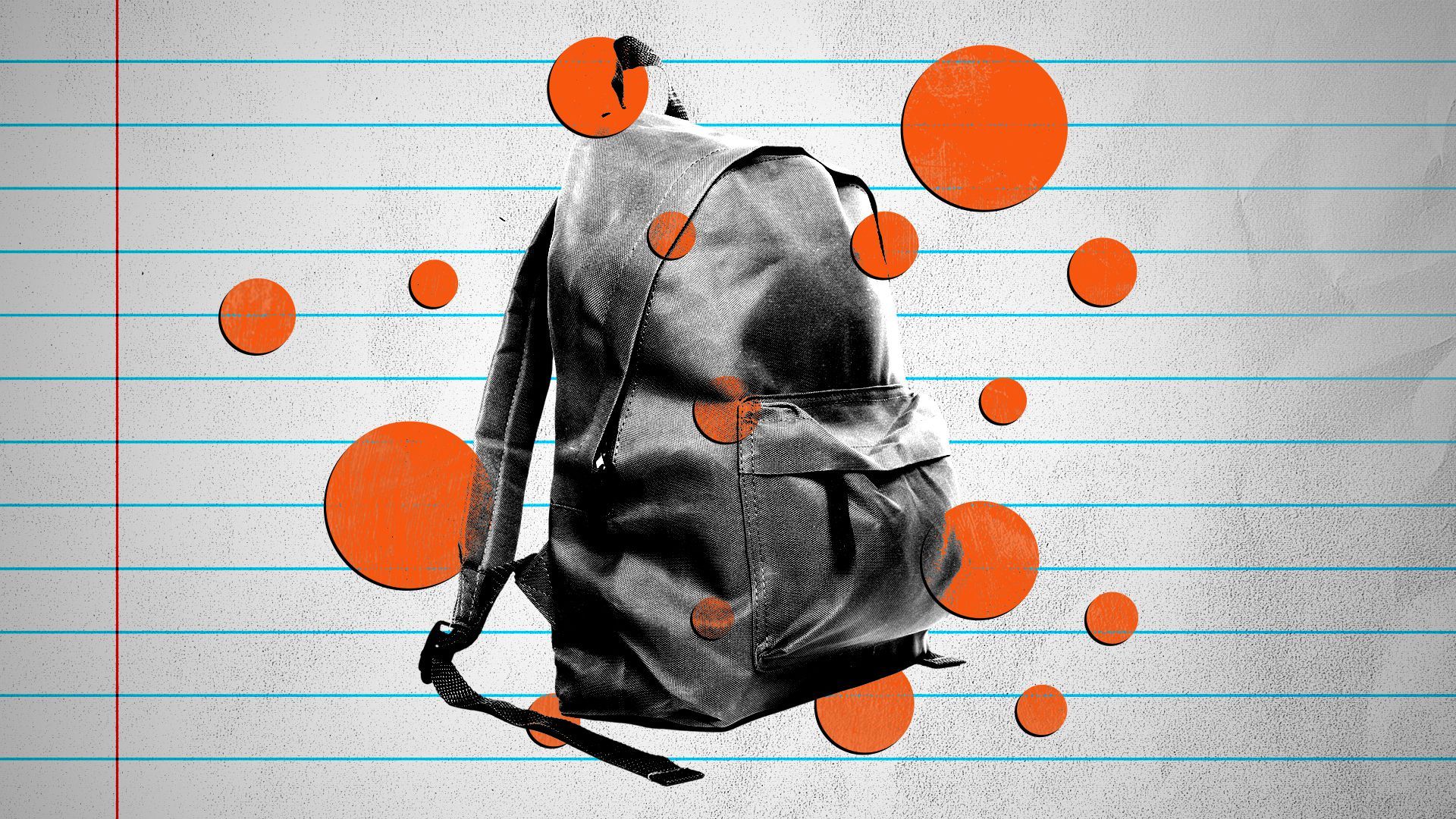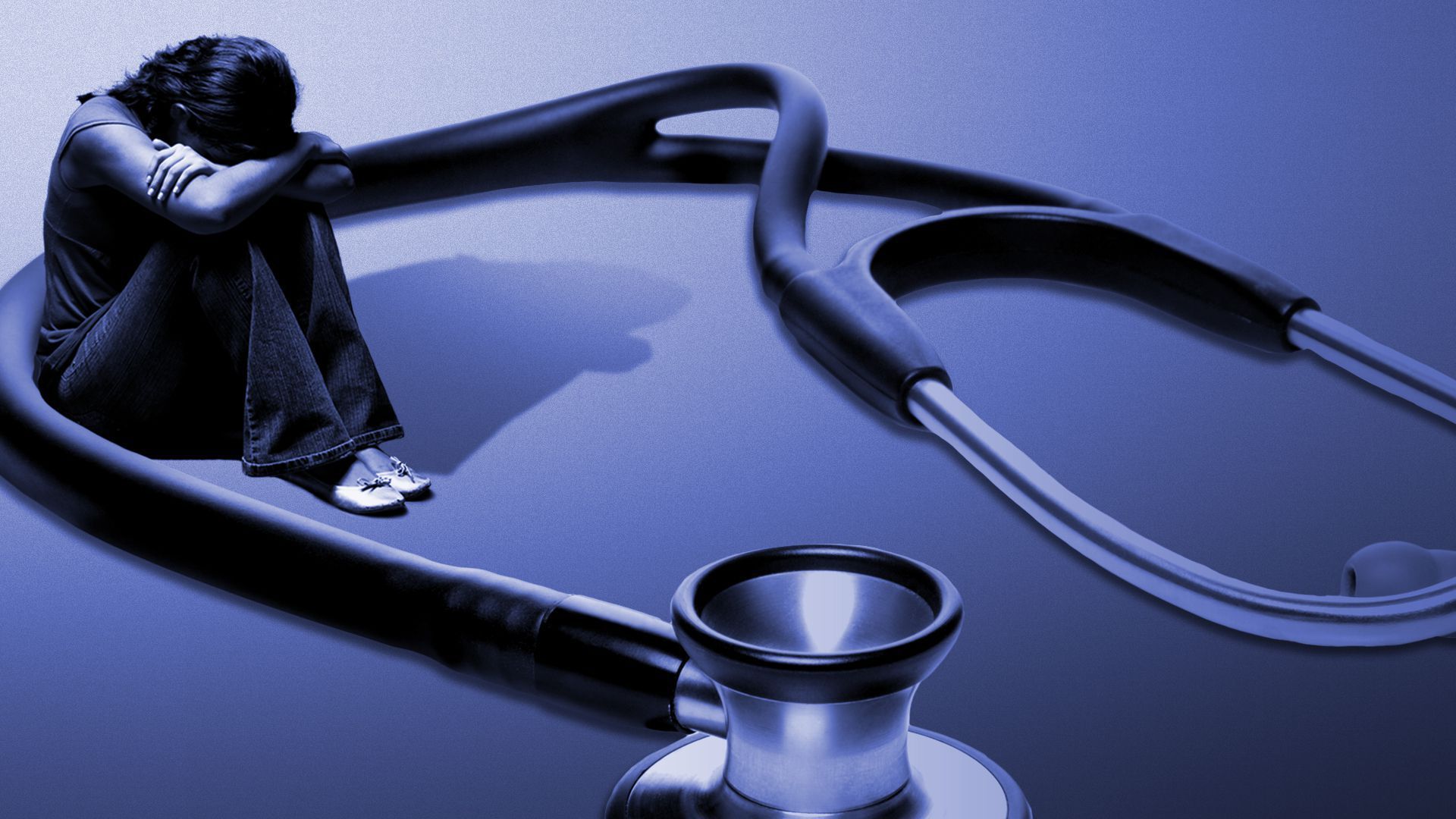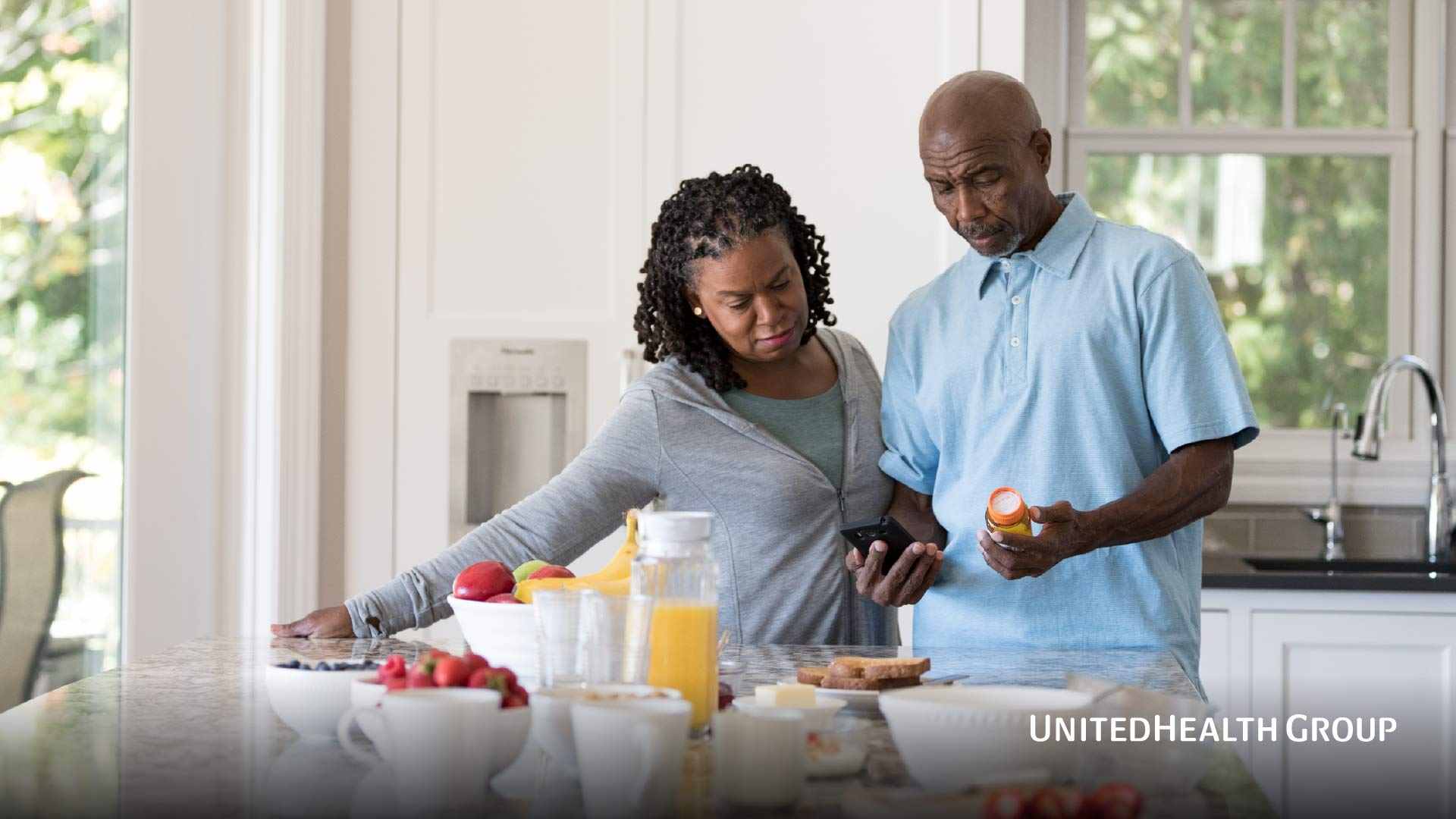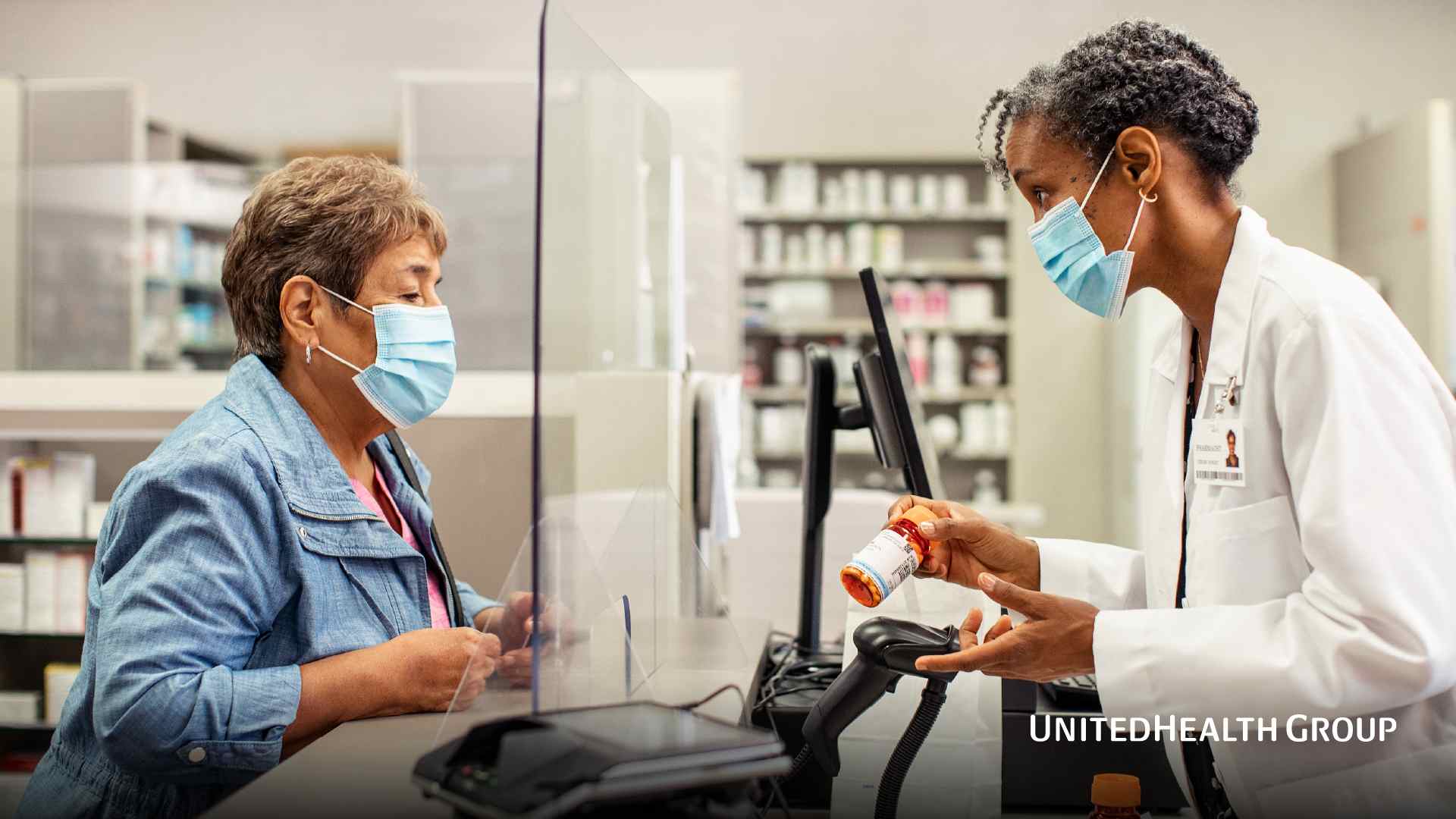| |
| |
| |
| Presented By UnitedHealth Group |
| |
| Axios Vitals |
| By Tina Reed · Sep 15, 2022 |
| 😃 Happy Thursday, Vitals readers. Today's newsletter is 836 words or a 3-minute read. Tune in today: Join me at 12:30pm ET for a virtual event on the growing threat of superbugs. Guests include Sen. Todd Young (R-Ind.) and the CDC Division of Healthcare Quality Promotion's Arjun Srinivasan. Register here. |
| |
| |
| 1 big thing: Concern about monkeypox spread shifts to college campuses |
 |
|
| Illustration: Shoshana Gordon/Axios |
| |
| Monkeypox has made it to college campuses, and experts say its spread among students in communal living arrangements could ultimately sustain the U.S. outbreak, Axios' Arielle Dreher writes. Driving the news: Georgetown University and George Washington University in Washington, D.C., the University of Texas at Austin and Bucknell and West Chester University in Pennsylvania already have reported confirmed cases, per WebMD. Yes, but: University health clinics could be hard pressed to offer vaccines and respond to a fast-evolving health emergency without partnering with local and state health agencies. - Biden administration health officials last month met virtually with college presidents and campus health officials to discuss best practices for curbing the spread of the virus and launched a landing page for schools and students with resources.
- But any response will hinge on the availability of vaccines. The administration has stockpiled enough ACAM 2000 to cover about a third of the population if needed, leaving it to local health providers to get available Jynneos vaccine to men who have sex with men, who account for the vast majority of cases, and others most at risk.
What they're saying: "I don't think colleges and universities are prepared to handle testing and vaccines," said Cesar Arias, an Infectious Diseases Society of America board member. - State health officials are already making contingencies and consulting with school officials in anticipation of new cases this fall, Michael Fraser, CEO of the Association of State and Territorial Health Officials, told reporters.
State of play: The schools aren't planning vaccination campaigns but are raising awareness among students while developing isolation plans, according to the report. What we're watching: Public health groups are calling on Congress to infuse the system with $4.5 billion in funding to combat the outbreak, a request that seems increasingly unlikely with little Republican support. Go deeper. |
    |
| |
| |
| 2. Monkeypox awareness surged over the summer |
| The public has quickly become familiar with monkeypox and how it spreads, but more than a quarter of Americans say they're not likely to get vaccinated if exposed to the virus, Axios' Adriel Bettelheim writes about a new Annenberg Public Policy Center survey. Why it matters: At a time when polls suggest crisis-weary Americans are tuning out public health messaging, the findings suggest the public is still able to lock in on information about a new health threat, said the Annenberg center's director, Kathleen Hall Jamieson. Findings: 61% of those surveyed know that a monkeypox vaccine exists, up from 34% in July. And the vast majority are aware monkeypox usually spreads through close contact with an infected person. - Nearly two-thirds (63%) know that men who have sex with men are at a higher risk of infection, up from 33% in July.
1 in 5 Americans worry about getting monkeypox over the next three months, which is roughly the same as in July. - Only 41% know that monkeypox is less contagious than COVID-19.
- The survey of 1,621 U.S. adults surveyed was conducted Aug. 16–22 and has a margin of error of ± 3.3 percentage points at the 95% confidence level.
|
    |
| |
| |
| 3. Sexual assault survivors can face large bills |
 |
|
| Illustration: Shoshana Gordon/Axios |
| |
| Sexual violence survivors who are uninsured are often saddled with medical bills that can soar well upwards of $3,000 for the care they receive, according to a new study published on the New England Journal of Medicine. Why it matters: A majority of people who are sexually assaulted do not come forward about their assaults due to trauma, stigma and fear, but the possibility of getting charged with such high health care costs can be even more "disincentivizing," said Samuel Dickman, a physician at Planned Parenthood of Montana and lead author of the study. Details: The study found that in 2019, nearly 113,000 survivors of sexual assault sought emergency care. Over 17,000 — 16% — were uninsured and faced medical charges averaging $3,673. - Victims who were pregnant had the highest charges at $4,553 in 2019.
- These costs are "certainly higher" now, said Steffie Woolhandler, a physician and study c0-author. "Health care costs have increased year upon year in the United States."
|
    |
| |
| |
| A message from UnitedHealth Group |
| Helping drive affordability and combat high drug costs |
| |
 |
| |
| Beginning in 2023, eligible UnitedHealthcare members will pay $0 out of pocket on five critical medications, including insulin and epinephrine. Learn how we're working to make prescription drugs more affordable for the patients who rely on them most. |
| |
| |
| 4. Data du jour: State-by-state coverage |
 Data: U.S. Census Bureau; Map: Simran Parwani/Axios The number of uninsured Americans across the U.S. last year ranged from 2.5% in Massachusetts to 18% in Texas, according to the latest American Community Survey from the U.S. Census Bureau. Why it matters: As we told you yesterday, the uninsured rate in the U.S. fell during the pandemic, largely due to enhanced Affordable Care Act subsidies and the Medicaid continuous coverage provisions. - But this census data shows how much that rate varies from state-to-state.
- It also shows the role private coverage plays, showing seven in 10 Americans had private coverage in 2021.
|
    |
| |
| |
| 5. Catch up quick |
| 🦠 The end of the COVID pandemic is "in sight," World Health Organization director-general Tedros Adhanom Ghebreyesus said Wednesday. (Knocks on wood...) (Reuters) 👀 However, a scathing report published Wednesday in the Lancet called the response to COVID "a massive global failure." (Washington Post) 👉 The Sacramento County coroner concluded that Lori McClintock, the wife of U.S. Rep. Tom McClintock, died of dehydration after ingesting white mulberry leaf. But some scientists, doctors, and pathologists are questioning its role in her death. (KHN) |
    |
| |
| |
| A message from UnitedHealth Group |
| Helping lower out-of-pocket costs for consumers |
| |
 |
| |
| Starting in 2023, eligible UnitedHealthcare members will pay $0 out of pocket on critical medications: - Insulin for diabetes.
- Epinephrine for allergic reactions.
- Glucagon for hypoglycemia.
- Naloxone for opioid overdoses.
- Albuterol for acute asthma attacks.
Learn more. |
| |
| ⭐️️ A big thank you, as always, to our all-star team including Adriel Bettelheim for editing the newsletter and Bryan McBournie for his copy edits. |
 | | Why stop here? Let's go Pro. | | |








No comments:
Post a Comment